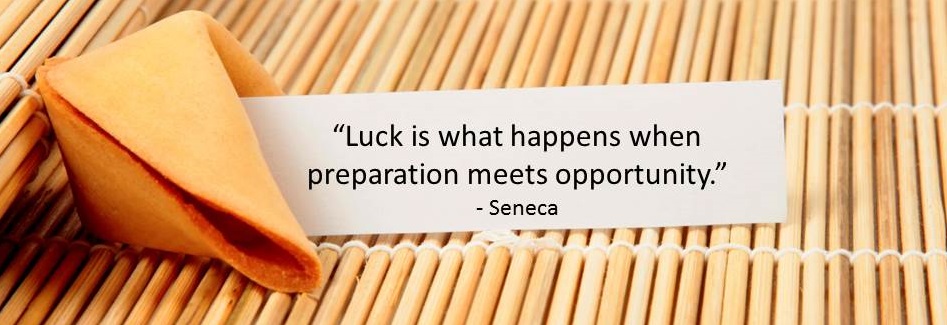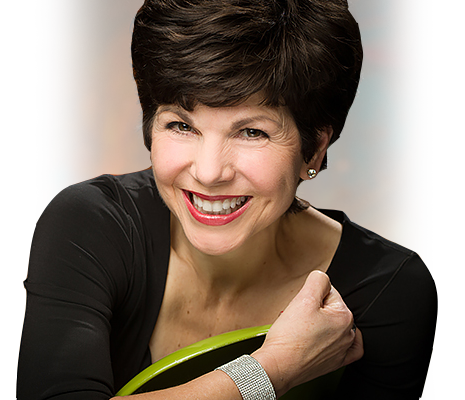
People often ask me if it’s possible to over-prepare for a speech or presentation. They worry that they’ll come off canned, too scripted, too stiff, or that they might lose some of their spontaneous charisma.
How do I answer their concerns? I tell them that preparation is essential to any successful presentation, especially if it’s a high-stakes presentation. I remind them that “winging it” is one of the most common presentation pitfalls. And underneath this bad habit of winging it are two things: 1) lack of discipline; and 2) fear. When we short cut the preparation process, we introduce risk. We potentially compromise our ability to communicate, connect, influence, and persuade. It takes effort and courage to practice and prepare for something important, like a presentation, speech, or debate.
The issue of preparation came up recently in the presidential debate on Monday, September 26, 2016. According to CNN Money, “well over 80 million people tuned in to see Hillary Clinton and Donald Trump face off, setting a new record in the sixty year history of televised presidential debates.”
Towards the end of the debate, Clinton thought that Trump was criticizing her for spending time preparing for the televised debate. Here’s a shortened transcription of the dialogue between them on the issue of preparation.
- Trump: “I’ve been all over the place, you decided to stay home, and that’s okay.”
- Clinton: “I think that Donald just criticized me for preparing for this debate. And yes I did. And you know what else I prepared for? I prepared to be President. And I think that’s a good thing.”
- Watch the video clip on YouTube
While these two presidential candidates have very different styles when it comes to presenting, communicating, connecting, and leading, I think they would both agree on the importance of these debates in the outcome that they both desire: to be elected the next President of the United States. Certainly that is worth preparing for!
“A professional will practice until she gets it right.
A master will practice until she can’t get it wrong.”
– Mark LeBlanc (as quoted in the book Stop Global Boring – page 229)
But you’re not running for President, so what’s the big deal?
You may not have 80 million people watching and critiquing your presentation. You may only be doing a webinar, or pitching a client, or speaking at your local Rotary Club. Still you need to prepare. And practice is an essential part of that preparation.
What do I mean by practice? Verbalizing your opening and closing remarks; Doing dry run rehearsals in front of mock audiences; audio or video recording yourself doing the entire presentation so you can see how long it really takes and where you stumble or ramble or get lost; annotating your script for vocal awareness – noting at what points you will pause, breathe, and emphasize. This is the kind of preparation that a professional who seeks mastery will undertake.
Most professionals that I know prepare by creating a lengthy PowerPoint slide deck and then flipping through them, adding, changing, tweaking the slides right up until the actual presentation. This is not the kind of preparation that will truly get you ready to succeed. This will only lead you astray and off-message, and bore your audience senseless.
The 3 P’s
One of my clients – a sales leader managing a team of inside sales professionals for a financial services organization – has developed a clever mantra called the 3 P’s. It stands for Preparing, Practicing and Presenting. He told me recently that he and his sales team now pay attention to all parts of their webinars and live presentations including preparing material, doing run-through’s of the presentation itself, and then owning the stage. Prior to their presentation training and coaching time with me, they didn’t put as much effort in one or two of these components and then wondered why their presentations had little or no impact. He and his team now studiously apply his 3 P’s…..Preparing, Practicing, and Presenting. And their confidence and their presentation results are markedly better than before.

Schedule time for practice and rehearsal
As you prepare and organize yourself and/or your team for your next presentation, I’d like you to dial up the level of readiness. Consider taking one or more of these actions:
- Hold a “FLARE” session with a group of trusted peers. Instruct them to ask you tough questions during your presentation practice. One of my clients who practices this calls it a “murder session.” It can be rough, but it will help prepare you for challenging questions. You won’t be caught off guard and are less likely to get defensive durng the actual presentation Q&A.
- Video record yourself doing a practice presentation. Play it back and critique yourself. Here’s a presentation tool from The Control Center that will help you figure out where you are strong and where you need work: Self-assessment Practice Video – worksheet
- Do a full dry run of your presentation. Invite people to sit in as your mock audience. Ask them for specific feedback on different aspects of your presentation (from content to delivery to engagement). Use this worksheet to secure their feedback – Presentation Feedback Form
- Meditate. The day before, the morning of, and moments before, take a few minutes to meditate and to be still. Quiet your mind. Focus on your breathing. When you feel peaceful and centered, you can then engage in visualization – creating images and intention of the most positive outcome you can imagine for yourself and your audience.
Never be ashamed of the effort you put into preparing yourself and your team for something important. This is your investment in your future success. It is your insurance policy to protect what’s important to you. And just because others on your team are not inclined to put in the kind of effort that you are, do not let that deter you. You are setting the bar high. You are preparing for BIG things.

